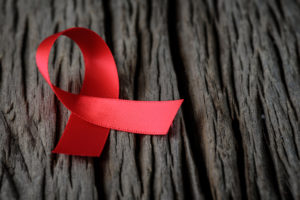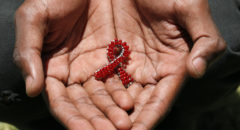 Let’s start a discussion about HIV prevention using this real-life case.
Let’s start a discussion about HIV prevention using this real-life case.
D. M. is a 27 yo African-American woman who was diagnosed with HIV 5-years ago. Her 3-year old son was born HIV negative. She is currently virally suppressed on a regimen of Triumeq. She married 3 months ago. Her husband has spoken to her doctor about starting PreP. After screening tests were done, he has come into the office to start the regimen.
This case illustrates 3 ways that HIV medicines can be used to protect from the spread of HIV.
D.M. currently takes her medicines properly and she has no detectable virus in her blood. Her HIV status was known when she was pregnant so the medicines prevented the baby from getting infected.
We learned over 25 years ago that the HIV drug zidovudine (AZT) can reduce the risk of an HIV-infected woman transmitting the infection to her baby. The combination treatments we use today are even more effective. In developing countries, maternal transmission of HIV infection to infants is still a serious problem, but efforts to screen mothers and start therapy have dramatically reduced infections in newborns. The babies may receive medications to protect them during breastfeeding.
So now D.M. must protect her husband from getting infected. Condoms may not be practical in a marriage. One way is to keep the virus under control by taking her medications. D.M. and her husband are a serodiscordant couple, meaning one partner is HIV- positive and the other partner is HIV-negative. In large, well-designed studies with serodiscordant couples, when the HIV+ partner wassuppressed on HIV medicines, the HIV- partner was never infected. Condoms were not used by the partners. Controlling the virus in the blood with HIV treatment prevents infecting another person. These studies confirmed the concept of Treatment as Prevention. In other words, effective treatment of infected individuals prevents the spread of the virus and new infections.
D.M. is taking a popular regimen of three strong HIV medicines combined into a single pill, taken once daily. She is undetectable and very unlikely to infect her husband during unprotected sex. But to add some additional protection and peace of mind for her husband, there is one more thing we can do. HIV medicines can also be used to protect individuals from getting infected by the virus. This is called Pre-Exposure-Prophylaxis or PrEP. Prophylaxis means prevention.
Pre-exposure means that the medicine is taken before there is a potential exposure to the virus through sex or intravenous exposure. So D.M.’s husband has come into to start PrEP after we have confirmed that he is not infected and that it is safe to use these medicines. He is starting Truvada, a combination of two medicines in one pill that is taken once a day. So D.M. is likely to remain healthy on medication for many decades. Her child is not infected. She and her husband can have a healthy sexual relationship and hopefully a happy marriage.
More on PrEP in the next article!
 Dr. Crawford received a B.S degree in Biology from Cornell University and a B.S. in Pharmacy from Temple University. He completed a residency in clinical pharmacy at the National Institutes of Health. He earned a doctorate in Pharmacology from the Uniformed Services University of the Health Sciences in Bethesda, Maryland. He completed a post-doctoral fellowship at the National Institutes of Health, studying microbial biochemistry and genetics.
Dr. Crawford received a B.S degree in Biology from Cornell University and a B.S. in Pharmacy from Temple University. He completed a residency in clinical pharmacy at the National Institutes of Health. He earned a doctorate in Pharmacology from the Uniformed Services University of the Health Sciences in Bethesda, Maryland. He completed a post-doctoral fellowship at the National Institutes of Health, studying microbial biochemistry and genetics.
He is currently with the Division of AIDS at the National Institutes of Health. He has over 25 years of experience in HIV treatment and clinical research. This article reflects his personal views and opinions.








